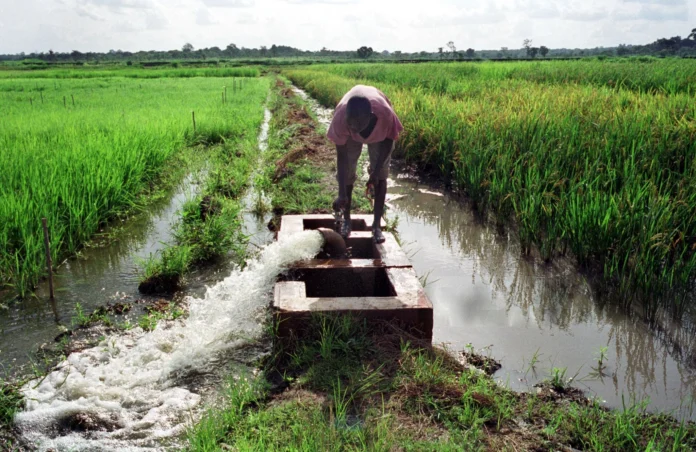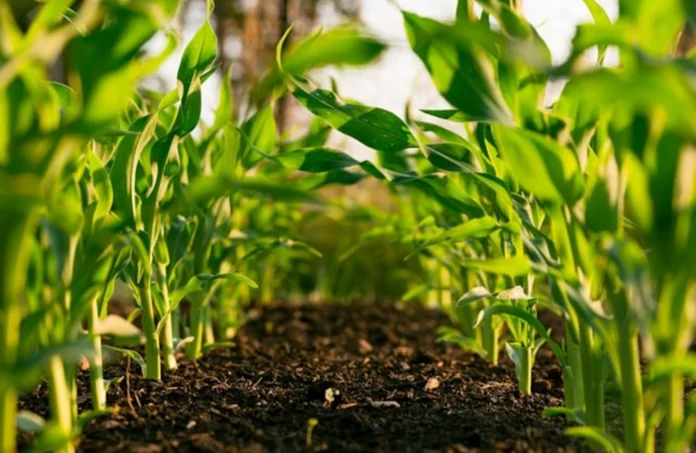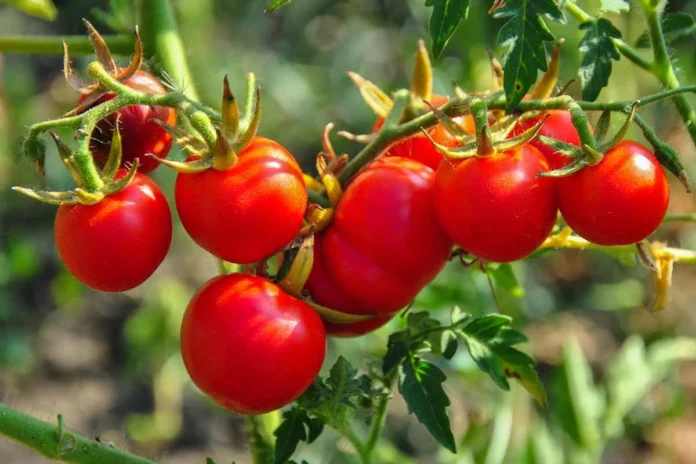Arabfields, Algiers, Algeria — In a bid to bolster national food security and pave the way for agricultural exports, Algeria’s Minister of Agriculture, Rural Development, and Maritime Fisheries, Yacine El-Mahdi Oualid, announced the launch of several ambitious projects aimed at modernizing the sector’s information systems. Speaking during a plenary session dedicated to oral questions at the National People’s Assembly on Thursday, the minister outlined how these initiatives, including dedicated digital platforms for each agricultural sub-sector, will enable precise tracking of needs for inputs, equipment, and production volumes.
The session, presided over by Ibrahim Fakhour, vice-president of the Assembly, and attended by Nadjiba Djilali, the Minister of Relations with Parliament, highlighted the government’s strategic pivot toward technology-driven agriculture. According to Oualid, these platforms will facilitate real-time monitoring and resolution of challenges across various agricultural chains, fostering conditions for self-sufficiency in key food staples and positioning several sectors for international markets. This move aligns with broader efforts to digitize Algeria’s agricultural governance, as evidenced by the recent launch of a National Agricultural Information System in September 2025, which seeks to create a harmonized nationwide database for seamless information flow from farms to decision-makers.
Algeria’s agriculture sector, which contributes significantly to the national economy and employs a substantial portion of the workforce, has long grappled with challenges such as water scarcity, outdated infrastructure, and dependence on imports for staples like grains. Valued at approximately USD 24 billion, the market is driven by rising food demand, government incentives, and investments in irrigation, all aimed at enhancing productivity and reducing vulnerability to global price fluctuations. The country’s strategy emphasizes expanding cultivated areas, modernizing strategic plant and animal production chains, connecting farms to reliable electricity, and bolstering cold storage capacities to minimize post-harvest losses.
A key focus of the minister’s address was the electrification of agricultural holdings, a critical enabler for modern farming techniques like irrigation pumps and mechanized equipment. In 2020, a staggering 79,343 farms across the nation lacked electricity connections, hampering efficiency and output. However, targeted projects in recent years have successfully linked 48,710 of these farms to the grid, with total funding exceeding 111 billion Algerian dinars (approximately USD 825 million at current exchange rates). This initiative not only supports daily operations but also integrates with renewable energy efforts, such as decentralized photovoltaic systems for rural farms, promoting sustainable energy use in agriculture. In regions like the Sahara, where innovative farming techniques are transforming arid lands into productive zones, such connections have been instrumental in projects linking agriculture with agro-industry and renewable energy.
Turning to the cereals sector, a cornerstone of Algeria’s food security, the minister underscored efforts to fortify storage infrastructure and bring it closer to production zones, thereby slashing transportation costs for farmers during input delivery and harvest collection. A flagship project involves constructing 30 strategic silos, each with a capacity of 100,000 tons, alongside 350 proximity collection centers capable of holding 5,000 tons apiece. To date, 232 of these centers have been completed, enhancing the nation’s ability to store and distribute grains efficiently. These developments build on prior investments, including nine concrete grain silos completed between 2014 and 2019 with a combined storage of 350,000 tons, and more recent additions like a 100,000-ton silo in Biskra province, funded at over 850 million dinars (USD 6.3 million).
Algeria’s cereal production has seen notable progress, with a national target of 71 million quintals (7.1 million tons) set for recent harvests, supported by modernized port silos and grain collection centers that help mitigate reliance on imports. Despite these advances, the country remains a major wheat importer, with projections for 8.7 million tons in 2024-25 due to domestic shortfalls, underscoring the urgency of the government’s strategy to boost local output and cut import bills. Additional measures include ensuring the availability of seeds and fertilizers, adopting cutting-edge production techniques, and establishing 78 one-stop shops since July to distribute inputs and provide farmer guidance through awareness campaigns.
Financial support mechanisms are also central to this modernization drive. The “Rafik” credit program, offered by the Bank of Agriculture and Rural Development (BADR), provides short-term loans of up to 24 months to finance agricultural inputs, tools, and seasonal activities, making it a popular choice among farmers for its flexible terms and interest coverage. Complementing this are broader investment incentives, the integration of advanced agricultural technologies, and the mobilization of cooperatives for cereals and legumes to supply essential machinery to producers. Looking ahead, Algeria plans to expand agricultural financing in 2025 by involving all public banks, aiming to diversify financial products and accelerate sector growth.
Oualid emphasized the strategic importance of developing the cereals chain, improving yields, and enhancing product quality through scientific research, the breeding of drought- and disease-resistant varieties, and fostering international partnerships. Recent collaborations, such as the Algerian-Italian mega-cereal project in Timimoun, which entered its active phase in 2025, exemplify this approach, focusing on large-scale production in desert regions. The minister’s vision extends to “smart agriculture,” with recommendations for digital integration across the sector, including cloud platforms and drone systems, as part of Algeria’s wider push toward technological innovation.
These initiatives come at a pivotal time for Algeria, which has historically relied on oil revenues but is now diversifying its economy through agriculture. Programs targeting farm modernization, irrigation expansion to one million hectares, and self-sufficiency in crops like corn, barley, and durum wheat have yielded promising results, with the sector thriving in 2024 amid strategic projects. By prioritizing renewable energy, digital tools, and collaborative research, the government aims not only to secure domestic food supplies but also to position Algeria as a competitive player in global agricultural markets.
Experts note that while challenges like climate change and water management persist, these multifaceted efforts, spanning infrastructure, finance, and technology, represent a comprehensive roadmap toward sustainable agricultural self-reliance. As Oualid reiterated, the ultimate goal is to safeguard Algeria’s food sovereignty while unlocking export potential, ensuring long-term economic resilience for the North African nation.












